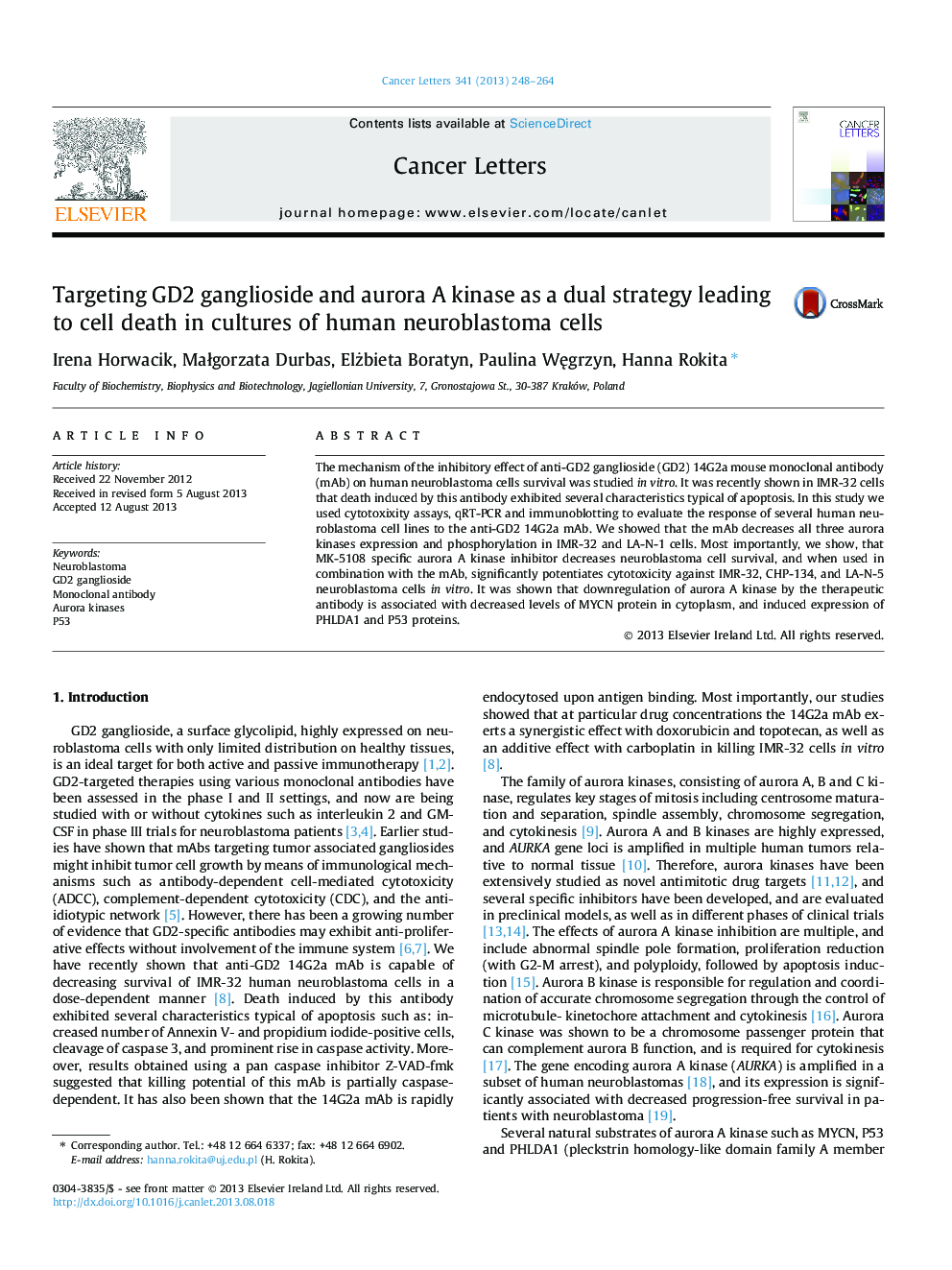| Article ID | Journal | Published Year | Pages | File Type |
|---|---|---|---|---|
| 2112793 | Cancer Letters | 2013 | 17 Pages |
•anti-GD2 ganglioside monoclonal antibody inhibits human neuroblastoma cells survival in vitro.•mAb decreases all three aurora kinases expression and phosphorylation in IMR-32 and LA-N-1 cells.•MK-5108 specific aurora A kinase inhibitor decreases survival of neuroblastoma cells.•MK-5108 together with the mAb significantly potentiate cytotoxicity against neuroblastoma cells.•The antibody decreases MYCN and induces PHLDA1 and P53 proteins expression.
The mechanism of the inhibitory effect of anti-GD2 ganglioside (GD2) 14G2a mouse monoclonal antibody (mAb) on human neuroblastoma cells survival was studied in vitro. It was recently shown in IMR-32 cells that death induced by this antibody exhibited several characteristics typical of apoptosis. In this study we used cytotoxixity assays, qRT-PCR and immunoblotting to evaluate the response of several human neuroblastoma cell lines to the anti-GD2 14G2a mAb. We showed that the mAb decreases all three aurora kinases expression and phosphorylation in IMR-32 and LA-N-1 cells. Most importantly, we show, that MK-5108 specific aurora A kinase inhibitor decreases neuroblastoma cell survival, and when used in combination with the mAb, significantly potentiates cytotoxicity against IMR-32, CHP-134, and LA-N-5 neuroblastoma cells in vitro. It was shown that downregulation of aurora A kinase by the therapeutic antibody is associated with decreased levels of MYCN protein in cytoplasm, and induced expression of PHLDA1 and P53 proteins.
